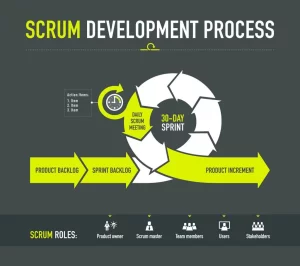<?php
/**
* CHAPTER 3: CUSTOM POST TYPES
*
* This chapter demonstrates how to create custom post types in WordPress.
* Custom post types allow you to create content types beyond the default posts and pages.
*
* Key concepts covered:
* - Registering custom post types with register_post_type()
* - Creating custom taxonomies for organization
* - Adding custom meta boxes for additional fields
* - Customizing admin columns and making them sortable
* - Proper data sanitization and security practices
*
* WordPress provides several built-in post types:
* - post (blog posts)
* - page (static pages)
* - attachment (media files)
* - revision (post revisions)
* - nav_menu_item (navigation menu items)
*
* Custom post types are useful for:
* - Products in an e-commerce site
* - Portfolio items for creative professionals
* - Team members for company websites
* - Events for event management
* - Books, movies, recipes, etc.
*/
// SECTION 1: REGISTERING A CUSTOM POST TYPE
// Creating a custom post type called 'book' to demonstrate various features
/**
* Function to register a custom post type called 'book'
*
* This function demonstrates the complete process of registering a custom post type.
* It uses register_post_type() which is the core WordPress function for this purpose.
*
* Key parameters explained:
* - $labels: Array of labels for the UI (plural, singular, menu names, etc.)
* - $args: Array of arguments that define the post type's capabilities and features
*
* Important $args parameters:
* - 'public': true = visible on frontend and admin
* - 'publicly_queryable': true = can be queried on frontend
* - 'show_ui': true = show admin interface
* - 'show_in_menu': true = show in admin menu
* - 'query_var': true = enable query_var for custom queries
* - 'rewrite': array('slug' => 'book') = custom URL structure
* - 'capability_type': 'post' = use same capabilities as posts
* - 'has_archive': true = enable archive page
* - 'hierarchical': false = not hierarchical like pages
* - 'menu_position': 5 = position in admin menu
* - 'supports': array of features (title, editor, thumbnail, etc.)
*
* Additional supports options you can use:
* - 'title': post title
* - 'editor': post content editor
* - 'author': post author
* - 'thumbnail': featured image
* - 'excerpt': post excerpt
* - 'trackbacks': trackback support
* - 'custom-fields': custom fields meta box
* - 'comments': comment support
* - 'revisions': post revisions
* - 'page-attributes': page attributes meta box
* - 'post-formats': post format support
*/
function hth_register_book_post_type() {
// Labels define how the post type appears in the admin interface
// These are translatable strings for internationalization
$labels = array(
'name' => _x('Books', 'post type general name'), // Plural name for the post type
'singular_name' => _x('Book', 'post type singular name'), // Singular name
'menu_name' => _x('Books', 'admin menu'), // Name in admin menu
'name_admin_bar' => _x('Book', 'add new on admin bar'), // Name in admin bar
'add_new' => _x('Add New', 'book'), // "Add New" button text
'add_new_item' => __('Add New Book'), // "Add New Item" page title
'new_item' => __('New Book'), // New item label
'edit_item' => __('Edit Book'), // Edit item label
'view_item' => __('View Book'), // View item label
'all_items' => __('All Books'), // All items label
'search_items' => __('Search Books'), // Search items label
'not_found' => __('No books found.'), // Not found message
'not_found_in_trash' => __('No books found in Trash.') // Not found in trash message
);
// Arguments array defines the post type's capabilities and features
$args = array(
'labels' => $labels, // The labels array defined above
'public' => true, // Make post type public (visible on frontend and admin)
'publicly_queryable' => true, // Allow queries on frontend
'show_ui' => true, // Show admin interface
'show_in_menu' => true, // Show in admin menu
'query_var' => true, // Enable query_var for custom queries
'rewrite' => array('slug' => 'book'), // Custom URL structure (/book/post-name)
'capability_type' => 'post', // Use same capabilities as regular posts
'has_archive' => true, // Enable archive page (/book/ will show all books)
'hierarchical' => false, // Not hierarchical (like posts, not pages)
'menu_position' => 5, // Position in admin menu (5 = below Posts)
'supports' => array('title', 'editor', 'thumbnail') // Supported features
);
// Register the post type with WordPress
register_post_type('book', $args);
}
// Hook the function to WordPress 'init' action - this is when post types should be registered
add_action('init', 'hth_register_book_post_type');
// SECTION 2: CUSTOM TAXONOMIES
// Creating a custom taxonomy called 'genre' for the 'book' post type
// Taxonomies are used to group and organize post types (like categories and tags for posts)
/**
* Function to register a custom taxonomy called 'genre'
*
* Taxonomies provide a way to group posts. WordPress comes with two built-in taxonomies:
* - Categories (hierarchical)
* - Tags (non-hierarchical)
*
* Custom taxonomies can be:
* - Hierarchical (like categories) - can have parent/child relationships
* - Non-hierarchical (like tags) - flat structure
*
* Common use cases for custom taxonomies:
* - Product categories for e-commerce
* - Portfolio categories for creative work
* - Event types for event management
* - Book genres (as shown in this example)
*
* Key taxonomy parameters:
* - 'hierarchical': true = like categories, false = like tags
* - 'show_ui': true = show in admin interface
* - 'show_admin_column': true = show column in post list
* - 'query_var': true = enable query_var for custom queries
* - 'rewrite': array('slug' => 'genre') = custom URL structure
*/
function hth_register_book_genre_taxonomy() {
// Labels for the taxonomy interface
$labels = array(
'name' => _x('Genres', 'taxonomy general name'), // Plural name
'singular_name' => _x('Genre', 'taxonomy singular name'), // Singular name
'search_items' => __('Search Genres'), // Search items label
'all_items' => __('All Genres'), // All items label
'parent_item' => __('Parent Genre'), // Parent item label (for hierarchical)
'parent_item_colon' => __('Parent Genre:'), // Parent item label with colon
'edit_item' => __('Edit Genre'), // Edit item label
'update_item' => __('Update Genre'), // Update item label
'add_new_item' => __('Add New Genre'), // Add new item label
'new_item_name' => __('New Genre Name'), // New item name label
'menu_name' => __('Genre') // Menu name
);
// Arguments for the taxonomy
$args = array(
'hierarchical' => true, // true = like categories, false = like tags
'labels' => $labels, // The labels array defined above
'show_ui' => true, // Show in admin interface
'show_admin_column' => true, // Show as column in post list table
'query_var' => true, // Enable query_var for custom queries
'rewrite' => array('slug' => 'genre') // Custom URL structure (/genre/fantasy)
);
// Register the taxonomy and associate it with the 'book' post type
// First parameter: taxonomy name
// Second parameter: array of post types to associate with
// Third parameter: arguments array
register_taxonomy('genre', array('book'), $args);
}
// Hook the function to 'init' action
add_action('init', 'hth_register_book_genre_taxonomy');
// SECTION 3: CUSTOM META BOXES
// Adding custom fields to the post editing interface
/**
* Function to add custom meta box to the book post type
*
* Meta boxes are sections on the post editing screen that contain custom fields.
* They allow you to add additional data to posts beyond the standard title and content.
*
* add_meta_box() parameters:
* - $id: Unique identifier for the meta box
* - $title: Title displayed in the meta box header
* - $callback: Function that renders the meta box content
* - $screen: Post type(s) where the meta box should appear
* - $context: Where on the page the meta box should appear
* - 'normal': main content area
* - 'side': sidebar
* - 'advanced': below normal
* - $priority: Priority within the context
* - 'high': higher priority
* - 'core': core priority
* - 'default': default priority
* - 'low': lower priority
*/
function hth_add_book_meta_box() {
add_meta_box(
'book_details', // Unique ID for the meta box
__('Book Details', 'hth-sample-plugin'), // Title shown in meta box header
'hth_render_book_meta_box', // Callback function to render content
'book', // Post type where this meta box should appear
'normal', // Context (normal, side, advanced)
'high' // Priority (high, core, default, low)
);
}
// Hook to add_meta_boxes action - this is when meta boxes are added
add_action('add_meta_boxes', 'hth_add_book_meta_box');
/**
* Function to render the content of the book meta box
*
* This function creates the HTML form fields that appear in the meta box.
* It demonstrates:
* - Security nonce fields for form validation
* - Retrieving existing meta data
* - Creating form fields with proper escaping
*
* @param WP_Post $post The post object being edited
*/
function hth_render_book_meta_box($post) {
// Add nonce field for security verification
// This prevents CSRF attacks and ensures the form submission is legitimate
wp_nonce_field('hth_save_book_details', 'hth_book_details_nonce');
// Retrieve existing meta values
// get_post_meta() parameters:
// - $post_id: ID of the post
// - $key: Meta key to retrieve
// - $single: true = return single value, false = return array
$author = get_post_meta($post->ID, '_book_author', true);
$isbn = get_post_meta($post->ID, '_book_isbn', true);
// Create form fields with proper labeling and escaping
// Note: Meta keys starting with underscore (_) are "private" and won't show in custom fields UI
echo '<p>';
echo '<label for="book_author">' . __('Author:', 'hth-sample-plugin') . '</label><br>';
echo '<input type="text" id="book_author" name="book_author" value="' . esc_attr($author) . '" class="widefat" />';
echo '</p>';
echo '<p>';
echo '<label for="book_isbn">' . __('ISBN:', 'hth-sample-plugin') . '</label><br>';
echo '<input type="text" id="book_isbn" name="book_isbn" value="' . esc_attr($isbn) . '" class="widefat" />';
echo '</p>';
}
/**
* Function to save the custom meta box data
*
* This function handles saving the custom field data when the post is saved.
* It demonstrates important security practices:
* - Nonce verification to prevent CSRF attacks
* - Checking for autosave to prevent data loss
* - Proper data sanitization before saving
*
* @param int $post_id The ID of the post being saved
*/
function hth_save_book_details($post_id) {
// Security check: verify nonce
if (!isset($_POST['hth_book_details_nonce']) || !wp_verify_nonce($_POST['hth_book_details_nonce'], 'hth_save_book_details')) {
return;
}
// Don't save during autosave
if (defined('DOING_AUTOSAVE') && DOING_AUTOSAVE) {
return;
}
// Check user capabilities (optional - add if needed)
// if (!current_user_can('edit_post', $post_id)) {
// return;
// }
// Save the author field
if (isset($_POST['book_author'])) {
// update_post_meta() parameters:
// - $post_id: ID of the post
// - $meta_key: Meta key to save
// - $meta_value: Value to save (sanitized)
update_post_meta($post_id, '_book_author', sanitize_text_field($_POST['book_author']));
}
// Save the ISBN field
if (isset($_POST['book_isbn'])) {
update_post_meta($post_id, '_book_isbn', sanitize_text_field($_POST['book_isbn']));
}
}
// Hook to save_post action - this runs when any post is saved
add_action('save_post', 'hth_save_book_details');
// SECTION 4: CUSTOM ADMIN COLUMNS
// Adding custom columns to the admin post list table
/**
* Function to add custom columns to the book post type admin list
*
* This function modifies the columns shown in the admin post list table.
* It allows you to display custom field data directly in the post list.
*
* @param array $columns Existing columns array
* @return array Modified columns array
*/
function hth_add_book_columns($columns) {
// Add custom columns to the existing columns array
// Key = column ID, Value = column title
$columns['book_author'] = __('Author', 'hth-sample-plugin');
$columns['book_isbn'] = __('ISBN', 'hth-sample-plugin');
return $columns;
}
// Hook to manage_{post_type}_posts_columns filter
add_filter('manage_book_posts_columns', 'hth_add_book_columns');
/**
* Function to render content for custom columns
*
* This function populates the custom columns with actual data.
* It's called for each post in the admin list table.
*
* @param string $column The column ID
* @param int $post_id The post ID
*/
function hth_render_book_columns($column, $post_id) {
switch ($column) {
case 'book_author':
$author = get_post_meta($post_id, '_book_author', true);
echo esc_html($author); // Always escape output for security
break;
case 'book_isbn':
$isbn = get_post_meta($post_id, '_book_isbn', true);
echo esc_html($isbn);
break;
}
}
// Hook to manage_{post_type}_posts_custom_column action
add_action('manage_book_posts_custom_column', 'hth_render_book_columns', 10, 2);
// SECTION 5: SORTABLE COLUMNS
// Making the custom columns sortable
/**
* Function to make custom columns sortable
*
* This function tells WordPress which columns should be sortable.
* Users can click column headers to sort the post list.
*
* @param array $columns Array of sortable columns
* @return array Modified sortable columns array
*/
function hth_sortable_book_columns($columns) {
// Make the custom columns sortable
// Key = column ID, Value = orderby parameter
$columns['book_author'] = 'book_author';
$columns['book_isbn'] = 'book_isbn';
return $columns;
}
// Hook to manage_edit-{post_type}_sortable_columns filter
add_filter('manage_edit-book_sortable_columns', 'hth_sortable_book_columns');
/**
* Function to handle custom column sorting
*
* This function modifies the query to sort by custom meta fields
* when a user clicks on a sortable column header.
*
* @param WP_Query $query The WordPress query object
*/
function hth_book_orderby($query) {
// Only modify admin queries for the main query
if (!is_admin() || !$query->is_main_query()) {
return;
}
// Only modify queries for the book post type
if ($query->get('post_type') === 'book') {
$orderby = $query->get('orderby');
// Handle sorting by book author
if ($orderby === 'book_author') {
$query->set('meta_key', '_book_author');
$query->set('orderby', 'meta_value'); // Sort by meta value alphabetically
}
// Handle sorting by book ISBN
elseif ($orderby === 'book_isbn') {
$query->set('meta_key', '_book_isbn');
$query->set('orderby', 'meta_value'); // Sort by meta value alphabetically
}
}
}
// Hook to pre_get_posts action - this modifies queries before they run
add_action('pre_get_posts', 'hth_book_orderby');
/**
* ADDITIONAL LEARNING RESOURCES AND TIPS:
*
* 1. Query Custom Post Types:
* - Use WP_Query with 'post_type' parameter
* - Example: $query = new WP_Query(array('post_type' => 'book'));
*
* 2. Display Custom Post Types on Frontend:
* - Create template files: single-book.php, archive-book.php
* - Use get_post_meta() to display custom fields
*
* 3. Custom Post Type Capabilities:
* - Use 'capability_type' => 'book' for custom capabilities
* - Create custom capabilities: edit_book, read_book, delete_book
*
* 4. REST API Support:
* - Add 'show_in_rest' => true to post type args
* - Enables Gutenberg editor and REST API access
*
* 5. Custom Post Type Templates:
* - single-{post_type}.php for single posts
* - archive-{post_type}.php for archive pages
* - taxonomy-{taxonomy}.php for taxonomy pages
*
* 6. Advanced Meta Box Features:
* - Use wp_editor() for rich text fields
* - Add media upload buttons with wp_enqueue_media()
* - Create repeatable fields with JavaScript
*
* 7. Performance Considerations:
* - Use meta_query carefully (can be slow)
* - Consider custom database tables for complex data
* - Use caching for frequently accessed data
*
* 8. Security Best Practices:
* - Always use nonces for form submissions
* - Sanitize input data before saving
* - Escape output data for display
* - Check user capabilities before saving
*/

Ep 5: Databases, Admin Menus & Secure Data Handling (Mastering WordPress Plugin Development)












